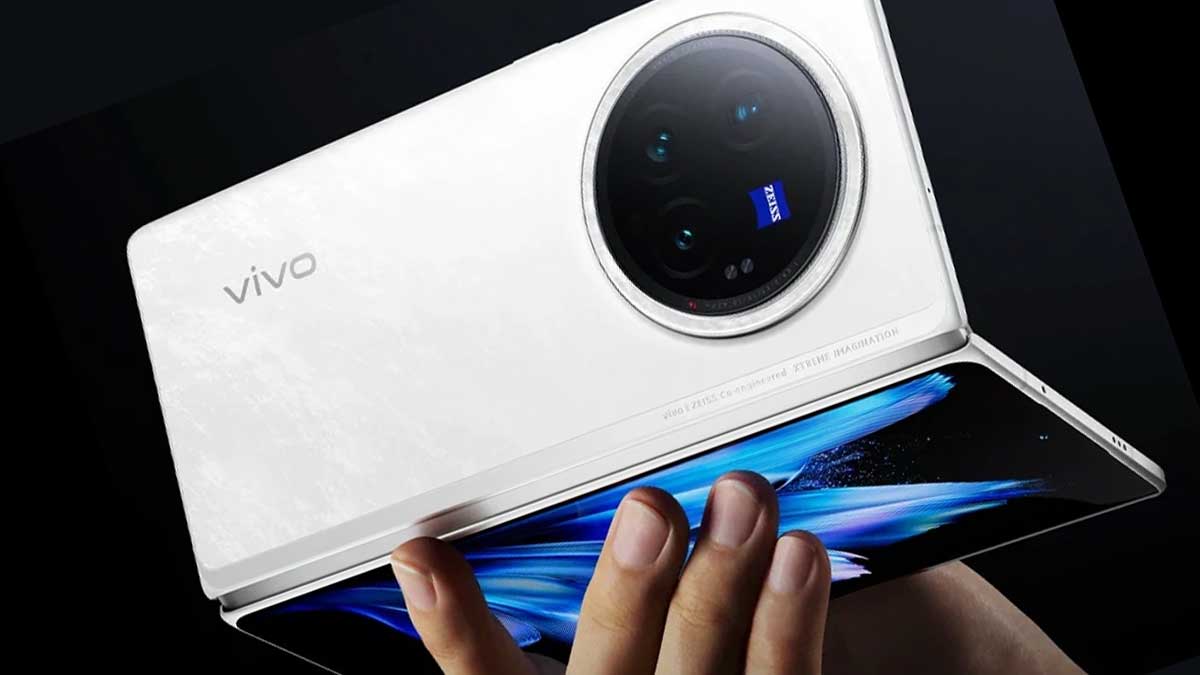- Home
- Billionaires
- Investing Newsletters
- 193CC 1000
- Article Layout 2
- Article Layout 3
- Article Layout 4
- Article Layout 5
- Article Layout 6
- Article Layout 7
- Article Layout 8
- Article Layout 9
- Article Layout 10
- Article Layout 11
- Article Layout 12
- Article Layout 13
- Article Layout 14
- Article Sidebar
- Post Format
- pages
- Archive Layouts
- Post Gallery
- Post Video Background
- Post Review
- Sponsored Post
- Leadership
- Business
- Money
- Small Business
- Innovation
- Shop
Recent Posts
Vivo X Fold 3 Pro Review: A Standout in Foldable Phones

The Vivo X Fold 3 Pro has quickly risen to the top of my smartphone list. Its standout features include an impressive camera system, a barely noticeable crease, and innovative software designed for increased productivity. Initially, I expected the Galaxy Z Fold 6 to surpass the OnePlus Open as the leading foldable phone, but the Vivo X Fold 3 Pro has already set a new standard even before the Fold 6’s release.
I’ve always favored foldables for their added functionality and the convenience of a tablet-sized display that fits in my pocket. Yet, they often involve compromises, especially in design and camera quality. For example, the Galaxy Z Fold 5 offers the most refined software experience among foldables, while the OnePlus Open excels with its Open Canvas for multi-tasking. Honor’s Magic V2 is noted for being the thinnest folding phone available. However, each of these models has its drawbacks—Samsung and Honor’s cameras fall short of premium standards, and while OnePlus struck a good balance between design and features, Vivo now leads with an even superior camera system, ergonomic design, and wireless charging. Despite its high price, the Vivo X Fold 3 Pro stands out for three main reasons.
The Vivo X Fold 3 Pro feels surprisingly light and manageable at just 236 grams and 11.2mm thick. While the Honor Magic V2’s slimmer profile is more ergonomic, the Vivo’s design is more comfortable to handle and unfold. However, the rear is susceptible to scratches and is the slipperiest among its peers, so using a case is advisable. It features a 6.5-inch cover screen and an 8-inch foldable display, both offering bright, sharp visuals with HDR10+, Dolby Vision, and a 120Hz refresh rate. For reading articles or ebooks, I found the display perfectly bright and enjoyable. The OnePlus Open’s cover screen offers a better aspect ratio, but Vivo’s taller design becomes comfortable over time. One persistent issue with foldables is the black bars on the cover screen for Instagram stories, a problem that will only be resolved when Instagram optimizes its app for foldables. Although Vivo has improved navigation with a left-edge bar on the main screen, the app is still not fully optimized for foldables. The crease on the Vivo X Fold 3 Pro is the least noticeable among all foldable phones I’ve used, including models from Samsung, Motorola, OnePlus, Tecno, and Honor. The hinge is sturdy, allowing the phone to stay open at around 150 degrees. The speakers, while loud, sound somewhat shallow, so I recommend using headphones for video watching.
Powered by the Qualcomm Snapdragon 8 Gen 3 chipset, the same as the Xiaomi 14 Ultra and Oppo Find X7 Pro, the Vivo X Fold 3 Pro performs exceptionally well. It comes with 16GB of LPDDR5X RAM and 512GB of UFS 4.0 storage. The phone runs smoothly during daily tasks, which include heavy use of social media apps like Instagram, Twitter, and WhatsApp, as well as browsing, reading, and music streaming. Multitasking is seamless, and the phone’s performance is consistently reliable. With a 5,700mAh battery, the Vivo X Fold 3 Pro supports 100W fast wired charging and 50W wireless charging. The phone charges from 15% to 90% in just 35 minutes with wired charging, while wireless charging requires Vivo’s Vertical Flash Charger 2. The most surprising aspect of the Vivo X Fold 3 Pro is its FunTouch OS 14, based on Android 14. The Fold-to-Split feature allows for quick split-screen activation, which is particularly useful for tasks like side-by-side research and note-taking. The Desk Calendar AOD, similar to the iPhone’s Standby mode but without the charging requirement, is helpful as a night clock in tent mode. FunTouch OS also offers various AI features, including Note Assist, Translation, and Transcript Assist. If there’s one thing I’d like to see improved, it’s the speed of the FunTouch OS.
While the OnePlus Open had the best camera system among foldables before this, the Vivo X Fold 3 Pro’s triple rear camera setup with ZEISS optics is now the best available on a foldable phone. It includes a 50MP main camera, a 64MP telephoto lens with 3x optical zoom and up to 100x digital zoom, and a 50MP ultrawide-angle sensor. This setup rivals the Vivo X100 Pro and provides excellent photo quality with vibrant colors. The telephoto camera offers multiple focal lengths and zoom options, while the 50MP ultrawide-angle camera maintains color and tone consistency with the main camera. The front cameras, with 32MP each on the cover screen and foldable display, are designed for video calls. For selfies, I recommend using the primary camera system.
As I look forward to the Samsung Galaxy Z Fold 6’s release, it’s clear that Samsung continues to offer a refined foldable experience with OneUI. However, the Vivo X Fold 3 Pro excels with its exceptional hardware, camera quality, software features, and battery life. Despite its high price tag of ₹1,60,000 ($1910), it is currently the best foldable phone available, offering a near-perfect blend of features. For frequent travelers, the lack of eSIM support might be a drawback, but if this is not a concern, the Vivo X Fold 3 Pro is the top choice in the foldable market right now.
Recent Posts
Categories
- 193cc Digital Assets2
- 5G1
- Aerospace & Defense46
- AI37
- Arts3
- Banking & Insurance11
- Big Data3
- Billionaires449
- Boats & Planes1
- Business328
- Careers13
- Cars & Bikes76
- CEO Network1
- CFO Network17
- CHRO Network1
- CIO Network1
- Cloud10
- CMO Network18
- Commercial Real Estate7
- Consultant1
- Consumer Tech180
- CxO1
- Cybersecurity68
- Dining1
- Diversity, Equity & Inclusion4
- Education7
- Energy8
- Enterprise Tech29
- Events11
- Fintech1
- Food & Drink2
- Franchises1
- Freelance1
- Future Of Work2
- Games141
- GIG1
- Healthcare78
- Hollywood & Entertainment186
- Houses1
- Innovation42
- Investing2
- Investing Newsletters4
- Leadership65
- Lifestyle11
- Manufacturing1
- Markets20
- Media193
- Mobile phone1
- Money13
- Personal Finance2
- Policy567
- Real Estate1
- Research6
- Retail1
- Retirement1
- Small Business1
- SportsMoney33
- Style & Beauty1
- Success Income1
- Taxes2
- Travel10
- Uncategorized8
- Vices1
- Watches & Jewelry2
- world's billionaires418
Related Articles
LG’s 77-Inch Transparent OLED TV Now Available for $59,999
At CES 2024, LG unveiled one of the most mind-blowing innovations in...
By 193cc Agency CouncilDecember 20, 2024Iqunix Magi 65: Stylish and Compact Mechanical Keyboard
The Iqunix Magi 65 series offers a refreshing take on mechanical keyboards,...
By 193cc Agency CouncilDecember 20, 2024Amazon Recalls Charmast Power Banks Over Fire Risks
Nearly half a million power bank chargers sold exclusively on Amazon over...
By 193cc Agency CouncilDecember 20, 2024Book Review: Unlocking AI’s Power in Everyday Life
In a world where artificial intelligence (AI) frequently makes headlines in the...
By 193cc Agency CouncilDecember 16, 2024















Leave a comment